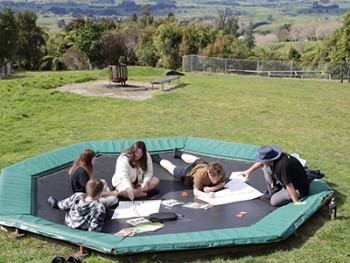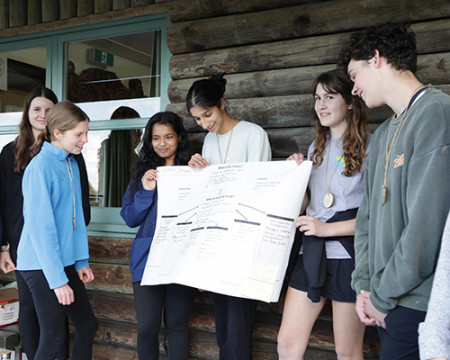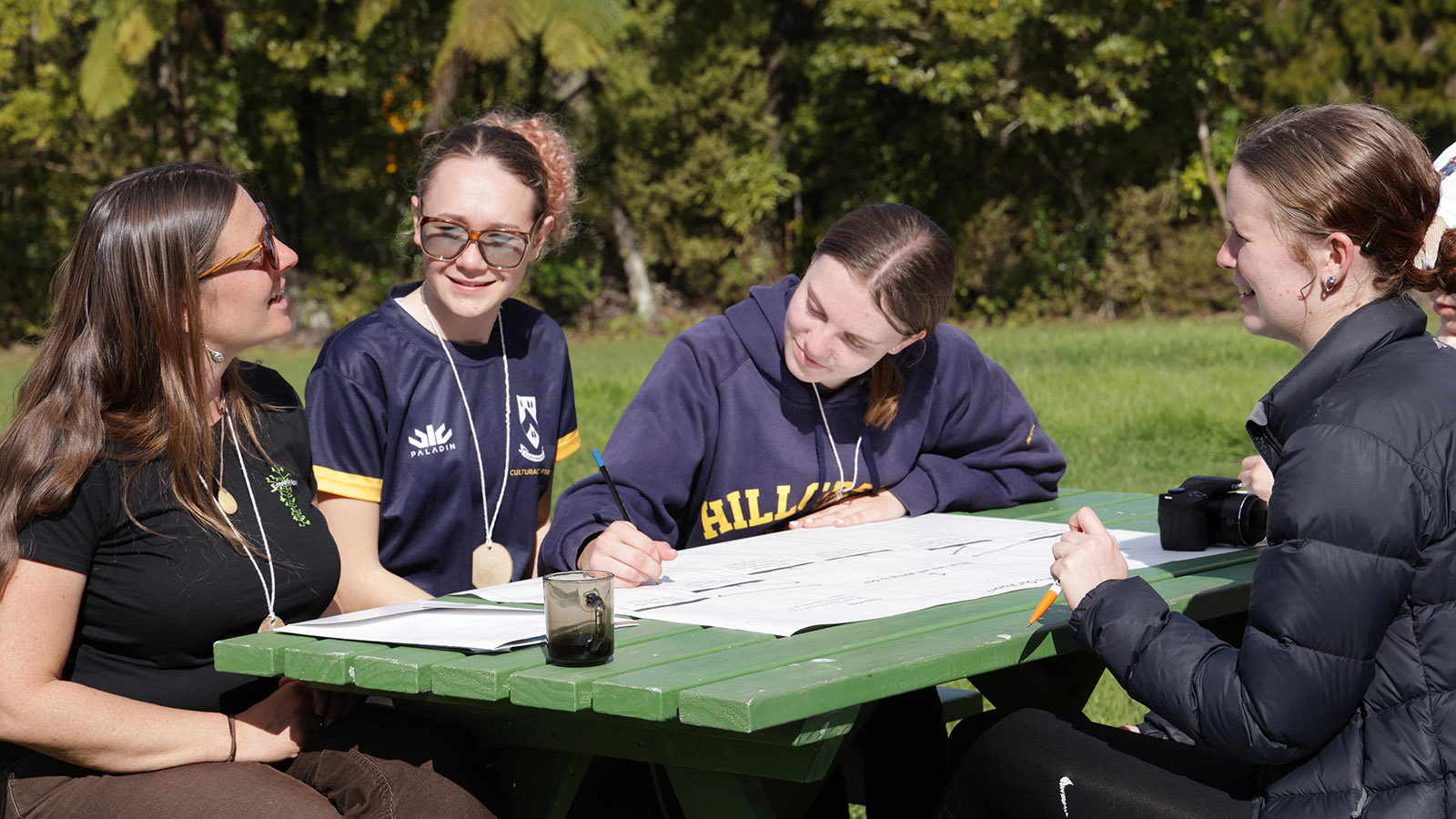“Our solutions don’t have to be world changing, they just have to be our-world changing.”
- Celeste Rakena, Rangatahi Voices
Tree planting, recycling and reducing car use are just some of the solutions local rangatahi have been devising to tackle climate change at a school and community-level.
Young people from across the Waikato were inspired to set in motion their own plans to help mitigate and manage the effects of this global problem at the region’s first Climate Action Camp.
 Students from Rototuna Senior High plan to develop a school environment council to raise awareness of climate change, influence school policy and motivate peers and teachers to action.
Students from Rototuna Senior High plan to develop a school environment council to raise awareness of climate change, influence school policy and motivate peers and teachers to action.
Joel Taylor, 17, says “to make a real difference, we need to work collaboratively”.
Their first order of business back at school will be conducting a whole-school waste audit to see where they can make headway with waste reduction and recycling initiatives.
“I want to share what I’ve learned about how severe climate change is and what we can do to address it,” says Stuti Patel, 16.
For Te Aroha College students, wellbeing benefits were just as important.
Their plan focuses on planting more trees at their college and in their local community.
Amenity values like shade and attracting biodiversity were a key part of Zachary Thomas-Stockley’s vision.
“We want to welcome other creatures to our school, so we’re going to buy trees as saplings, grow them up and get planting,” says the 16-year-old.
Students learned from guest speakers – including specialists, mana whenua and organiser of the School Strikes 4 Climate, Sophie Handford – that even small actions can make a difference, especially when you can inspire others to make a change.
Alexis Moore, 13, says everyone has a part to play in delaying the more severe effects of climate change by cutting their carbon emissions. “So why wouldn’t we? The first step is the most important.”
 The educational and fun-filled two-day camp took place in the rolling foothills of Mt Pirongia, at the Pirongia Forest Park Lodge. It included adventure and nature activities like rock climbing and stream studies.
The educational and fun-filled two-day camp took place in the rolling foothills of Mt Pirongia, at the Pirongia Forest Park Lodge. It included adventure and nature activities like rock climbing and stream studies.
Waikato Regional Council Senior Education Advisor Michelle Daly, the event’s organiser, says climate change is the defining issue of our generation.
“This camp is the first of its kind in the Waikato and it was a fantastic opportunity for climate-conscious young people to get together and feel empowered to lead local climate action initiatives.”
The event was attended by Enviroschools Hillcrest High, Te Aroha College, Rototuna Senior High and Waikato Waldorf School and they were joined by Te Kōpuku High who are part of the Kura Waitī ko Kura
Waitā (River Schools to Moana Schools) programme, which is led by Te Toki Voyaging Trust and funded by Waikato Regional Council to advance mātauranga Māori in environmental education.
Local ancestral knowledge and legends from the area were also part of the Climate Action Camp, with engaging talks on mātauranga and pūrākau Māori by local mana whenua Tiaki Ormsby and Mihirawhiti Searancke from Purekireki Marae.
Project Advisor Lorraine Dixon from Waikato-Tainui gave a kōrero on the relationship between climate change and the Māori worldview, and the National Institute of Water and Atmospheric Research (NIWA) ran games to help students understand the risks climate change poses to local marae, and how those risks can be mitigated.
Students also heard from Rangatahi Voices, an independent youth forum for the Waikato region.
Spokesperson Celeste Rakena, 25, says the young people at the camp were amazing.
“We’ve been so encouraged by the response we received and the potential it represents to amplify the youth voice.”
“Although climate change can seem overwhelming, I feel reassured that, together, we’ve got this.”



To ask for help or report a problem, contact us
Tell us how we can improve the information on this page. (optional)